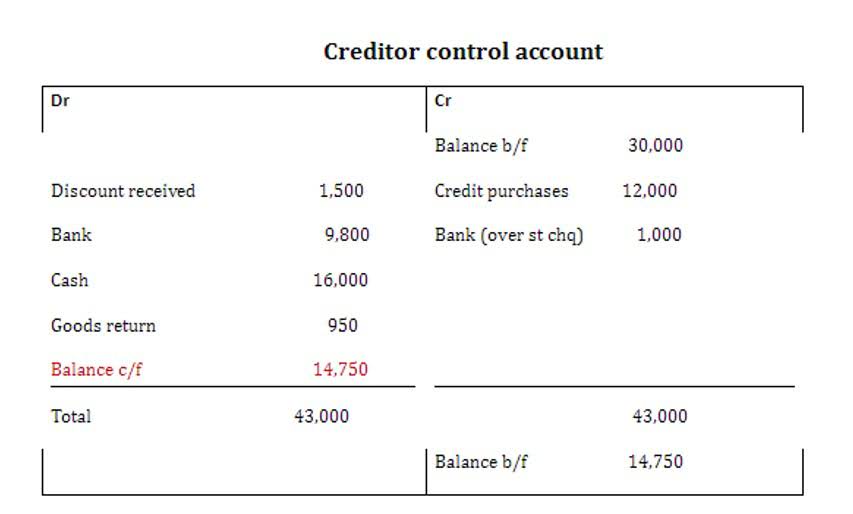Warning: Trying to access array offset on value of type bool in /var/www/wp-content/themes/enfold/framework/php/function-set-avia-frontend.php on line 536
Bookkeeping Basics for the Small Business Owner

You’re not actually making or losing any money—it’s just in a new place. Any money or investments (like equipment and property) coming in from the owner of the business (so, probably you!) goes under equity. As procrastination-worthy as it may seem, bookkeeping is a necessary part of successfully running your business. Appvizer provides you with a glossary to clarify these concepts and help you manage your business with peace of mind. Entrepreneurs and freelancers under the simplified micro-BNC scheme, here’s a summary of your obligations and a guide to make your declarations easier. Tracking your AR, usually with an aging report, can help you avoid issues with collecting payments.
Why Bookkeeping Is Important for Small Businesses
- On top of that, you need the data used in bookkeeping to file your taxes accurately.
- Every journal entry should include a date, accounts affected, amounts, and a clear description of the transaction.
- Assets, liabilities, and equity make up the accounts that compose the company’s balance sheet.
- The bookkeeper enters relevant data such as date, price, quantity and sales tax (if applicable).
- You can also use financial ratios here to dive deeper into your profit and loss statement.
It’s full of useful tips on why doing your own books is important, how you can get started, the best way to maintain it, what to look for in software plus so much more. However, as simple as it might seem on paper, it’s important you recognise when the beast becomes too big. When this is the case, you should know to pick the right time to hand things over to a professional or start using EasyBooks app by clicking the button below. For those new to bookkeeping, there’s a wealth of user-friendly tools and templates out there that can simplify the process. If you’re maintaining the books for your small business, then you need to follow all of the principles outlined above.
Is it worth paying a bookkeeper?
There’s a little bit of learning involved that will make getting to grips with bookkeeping much easier in the long run. To help, we’ve listed the most basic types of bookkeeping you should know below. This would then accurately reflect the fact that while you paid the full amount upfront, from an accounting perspective, you didn’t “use” it all up at once.
Bookkeeping Options for Small Business Owners
For both sales and purchases, it’s vital to have detailed, complete records of all transactions. You’ll need to note the amount, the date, and any other important details to ensure you can accurately summarize your finances when it comes time for tax season. Purchase receipts should always be kept as proof that the purchases took place.

The Basic Bookkeeping Terms You Need to Know
Most accounting software today is based on double-entry accounting, and if you ever hire a bookkeeper or accountant to help you with your books, double-entry is what they’ll use. Mixing together personal and business expenses in the same account can also result in unnecessary stress when you need to file taxes or do your bookkeeping. It could mean a business expense gets lost in unearned revenue your personal account and you miss out on an important deduction. If you need to borrow money from someone other than friends and family, you’ll need to have your books together.
According to ZipRecruiter, as of July 2021, the average annual pay for a freelance bookkeeper in the United States is $55,094 a year. This works out to be approximately $26 an hour, over $1,000 a week, or $4,600 a month. Of course, rates and salary can vary depending on the person’s education, certification, skills, years of experience, and other factors. The American Institute of Professional Bookkeepers, for example, grants the Certified Bookkeeper Designation.
- Bookkeepers ensure that every financial transaction is accurately recorded in the business’s books, keeping an organized system to track financial activities.
- Business owners or accountants can then use these statements to gain insight into the business’s financial health.
- Most accounting software does this for you, so you don’t need to worry about an extra step.
- Like Gusto, Paychex Flex is primarily focused on employee payroll and benefits, as well as HR services.
How to Start Bookkeeping in a Small Business
Some tools go beyond simple accounting management and offer additional functionalities. It all depends on the size of your company and the nature of your business. For industrial and commercial profits (BIC), the obligations are the same as for BNC activities, but you are subject to accrual accounting (with receivables and payables). The chart of accounts may change over time as the business grows and changes. The debited account is the one that receives or loses value, and the credited account is the one that gives or gains value. The golden rules of accounting can help ensure that your bookkeeping is accurate and up-to-date.

Track Absolutely Everything

The more work you put into developing an effective accounting system, the less time you’ll accounting services for individuals spend stressing out around tax season. Most accounting software (such as FreshBooks) has integrated functionality to help you keep better tax records and reduce your tax burden. It should also be noted that accounting software can save you hundreds, if not thousands, of dollars if you hand your accounts off to a third party for tax prep. Tax preparation fees can add up with disorganized records, so consider quality software an investment.

Why Do Small Businesses Need Bookkeeping?
An accounting ledger is a book or system you use for recording and classifying financial transactions. Likewise, the ‘matching principle’ is an approach where expenses are recorded in the same period as the related revenues. This ensures your financial statements accurately reflect your business activities. Last but not least is keeping your https://www.bookstime.com/ records organized, accurate, and 100% compliant.

